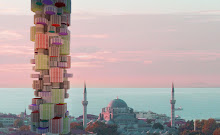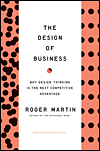A few weeks ago, I attended a conference at the University of California, Los Angeles (UCLA) on anthropologist Clifford Geertz and his work on culture and Islam in Sefrou, Morocco. Various scholars from around the world came to speak and expand on his research. While many of the presentations required a more in depth and intimate understanding of Geertz's work (which I do not have), there was one talk that peaked my interest. Hassan Rachik from Hassan II University in Casablanca, gave a talk on how religion turns into ideology. It is something I have pondered fleetingly when I am reading the newspaper and there is another story about a questionable political act done in the name of religion. Rachik attempted to explain this transition using Morocco as the basis for his thesis.
Accordin g to Rachik, in Morocco, the creation of ideology has very little to do with theology and much more to do with sociology and politics. Ideology is used to change society. More often they are a set of ideas that are used to support a political process. In the past, Islam was a religion loosely embedded in the political process. However, when it is transformed into an ideology, it becomes a belief system that is deeply embedded in the political process. In Morocco, a loss of orientation in the past led to the creation of an ideology. This was especially the case in the time of colonialism, when old road maps, according to Rachik were no longer valid; or more recently, with globalization.
g to Rachik, in Morocco, the creation of ideology has very little to do with theology and much more to do with sociology and politics. Ideology is used to change society. More often they are a set of ideas that are used to support a political process. In the past, Islam was a religion loosely embedded in the political process. However, when it is transformed into an ideology, it becomes a belief system that is deeply embedded in the political process. In Morocco, a loss of orientation in the past led to the creation of an ideology. This was especially the case in the time of colonialism, when old road maps, according to Rachik were no longer valid; or more recently, with globalization.
For a religion however, to evolve into an ideology requires a more secular, plural society that allows for a breakage from past beliefs. For an ideology to gain traction, old norms, social, local and tribal standards lose importance. Rachik states, that according to Clifford Geertz, for those who lose their traditional society, ideology helps them make sense of the change.
Those who manipulate religion into an ideology are often using religion only to serve their own political agenda. Rachik argued that religion is often used for political aims because it is merely convenient and effective in capturing attention in a volatile society. He concluded by stating the danger of reducing religion into an ideology. Especially since religion can be transformed into an ideology and then morphed again into a new alternate religion - as we commonly see now in many parts of the world - where horrific acts are done in the name of religion.
...On a brighter note, later that evening, as part of the same conference, I attended a musical performance of  Moroccan musicians. The group of musicians, most of them professors at the Conservatoire of Sefrou, flew in from Morocco for this event, as was explained to us by the mayor of Sefrou. Before the musicians took the stage, the mayor passionately expressed first in broken English and then in Arabic, the importance of cultural collaboration and peaceful co-existence. He emphatically stated that the Jews and Muslims lived for centuries side by side in Morocco. The Orchestra of Sefrou, he stated was a perfect example of this unity, since it was made up of Jewish and Muslim musicians making music in harmonious unison.
Moroccan musicians. The group of musicians, most of them professors at the Conservatoire of Sefrou, flew in from Morocco for this event, as was explained to us by the mayor of Sefrou. Before the musicians took the stage, the mayor passionately expressed first in broken English and then in Arabic, the importance of cultural collaboration and peaceful co-existence. He emphatically stated that the Jews and Muslims lived for centuries side by side in Morocco. The Orchestra of Sefrou, he stated was a perfect example of this unity, since it was made up of Jewish and Muslim musicians making music in harmonious unison.
12.17.2007
How Religion Evolves into Ideology & Some Musical Harmony
Subscribe to:
Post Comments (Atom)





























No comments:
Post a Comment